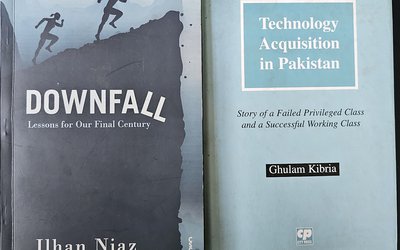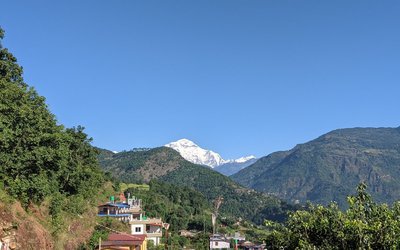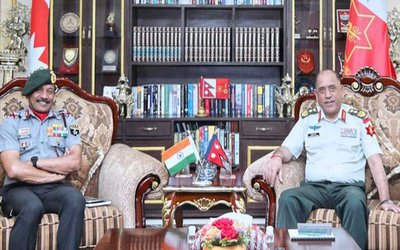The count down has already begun. The promise to deliver a much awaited constitution within 12 months has been repeatedly made by scores of political actors, advisers, leaders and players. The task, seemingly, is daunting but not impossible. The hurdles are widespread but not insurmountable. The references to challenges emanating from different ideological and philosophical inconsistencies, past promises, future strategies and unfathomable popular aspirations abound. Yet there seems to be dearth of combined actions to reconcile and clarify the inconsistencies, pave the way to move forward smoothly and achieve the set target.
The landmark 2006 Peace Accord did, no doubt, close one chapter of a sanguine political epic traced with much difficulty, but it also did open up many more new chapters, each one with multiple sub-headings, footnotes and provisos. Some, certainly logical and realizable, but others, deliberately and tactically filled with ambiguities.
The different pointless “point-accords” (the twelve-points, the seven-points, the four-points or the two-points accords, to name only a few) have continued to blur the vision of not only those watching the theatrics passively from a safe distance but also those who initialed and signed, or for political point-scoring, adhered to such accords only through their communiqués, and have brought them all to a point that none now remembers the scope, the nature and the substance of rights, obligations and overall commitments therein included. Ironically, no recourse from any legal institution was ever formally sought to verify the binding nature of these accords. In that vein, it is quite easy to understand the difficulties involved in managing the dynamics of relations, on one hand, amongst the troika and the quartet, and on the other, amongst them and the rest of the parties. Given the confusion the political actors continue to splash each time they make a remark in public, with their own different planes of values, the gamut of renegotiations appears inevitable.
A long awaited demand for a peoples’ assembly to draft a constitution was certainly met, but barring a flurry of confusions it succeeded in adding at multiple levels, the first assembly failed to seal the constitution-making deal, thus, to pave the way for a constitutionalism par excellence that was initially promised. Certainly not only one amongst us should be blamed for the mishap. It was our collective wisdom that failed and our common sleep-walking that frustrated. Because of the contrast in perspectives of those elected and the electors, those retaining real power and those enjoying virtual power, the leaders thriving in cronyism and the followers living in cynicism, and the intellectuals sharing a dream based on their wishful thinking and the day-dreaming citizens comfortably accepting redacted proposals, the real joy of a people’s constitution could not materialize. Quite an extraordinary catalogue might be made of the confusions, arguments and rebuttals that prevailed during the assembly’s life. After all, politics does not necessarily recognize the maxim, “what is sauce for the goose is sauce for the gander.” Everyone retained, at hand, a recipe for one’s own sauce.
The eminent jurist Dr. Surya Dhungel has, in his recent opinion piece on Institutionalizing Democracy, notedthat “the experiences of successful democracies have proved that constitutional framework is the foundation on which basic norms and major institutions of democracy rest.” Indeed, the exercise of preparing a constitution, a crucial political instrument, which not only needs to succeed in rebuilding trust and honoring the sacrifices of the martyrs, but also pave the way for people to live in harmony, needs to pay full attention to the substance, the form and, most importantly, the process. Quick-fixes, although providing short-term relief, would be destructive. Such an exercise, moreover, requires dexterity and skill in ensuring the creation of a real and functional equilibrium acceptable to all actors (citizens, civil society), in particular, in a context which still calls for dealing with so many unknowns and variables.
With respect to the second assembly, the above-mentioned twelve months’ deadline, along with the non-stop frenetic haste of those in charge, actually, appears self defeating, except if one were to believe that a constitution is “ready” and is in “safe-keeping”, and that through the one-year schedule, intended to be tactical, time is being bought to cast on it a local ownership and legitimacy, and to avoid that, by perceived excessiveness in fast-tracking, people are unnecessarily scared and confounded as to its origin and overwhelmed as to the rapidity of its issuance.
If otherwise, the citizenry would rather be tempted to say, “take decades if you like, but give us a simple and practical constitution,” which, in the words of Franklin D. Roosevelt on the US Constitution, “always makes it possible to meet extraordinary needs by change in emphasis and without loss of essential form”. The citizens, with their admirable level of patience, would further add, “even if we will be unable, our grandchildren will certainly be present to enjoy the rights under such a constitution!”

Dr. Kishor Uprety
The author can be reached at kshitiz@juno.com
- Not Yet Totally Lost. Hope Remains!
- Jul 20, 2023
- Book Review: CHAKRABYUHAMA NEPAL KO JALASROT (WATER RESOURCES OF NEPAL IN A LABYRINTH)
- Jan 14, 2023
- An Overture Filled with Confusion
- Nov 27, 2022
- A Tumultuous Destiny
- Apr 18, 2022
- What Next For The Nation?
- Dec 13, 2021















